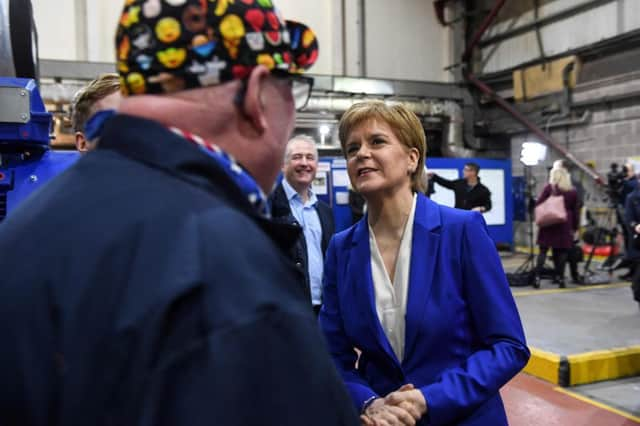World records hottest decade ever as temperature increase nears 1.1C


Last year saw the second highest average global temperatures in records dating back to the 19th century, evidence from multiple data sets suggests.
Only 2016 – when temperatures were boosted by a significant El Nino weather pattern in the Pacific – has been hotter since the records began.
Advertisement
Hide AdAdvertisement
Hide AdThe data also shows the past five years were the warmest in the 170-year series and the 2010s were the hottest decade on record.
Scientists at the Met Office Hadley Centre, the University of East Anglia’s Climatic Research Unit and the UK National Centre for Atmospheric Science produce one of the global data sets.
It is compiled from millions of air and sea surface temperature measurements taken across the globe from land on all continents and from all oceans.
The data shows that temperatures were 1.05C above pre-industrial levels, making 2019 the third warmest year in the series stretching back to 1850, behind 2016 and 2015.
Scientists from US agencies Nasa and the National Oceanic and Atmospheric Administration (Noaa) also produce data sets for global temperature, each dating back to 1880, and find 2019 is the second warmest on record.
Dr Colin Morice, from the Met Office Hadley Centre, said: “Each decade from the 1980s has been successively warmer than all the decades that came before.”
World Meteorological Organisation secretary-general Petteri Taalas said global temperatures had risen by about 1.1C since pre-industrial times, ocean heat was at record levels and, on the existing emissions path, the world was heading for 3C to 5C of warming by 2100.
The data was confirmed as business secretary Andrea Leadsom said Britain would lead the next 30 years of climate action amid opposition warnings over the government’s “stop-start” policies.
Advertisement
Hide AdAdvertisement
Hide AdMs Leadsom agreed the wildfires in Australia were a “wake-up call for the world” and warned the impacts of climate change are “in the here and now”.
But Labour and the SNP were among those raising concerns about the speed of change and the lack of comprehensive policies to support the rhetoric. Labour leadership candidate Lisa Nandy said the UK should not strike a post-Brexit trade deal with the US if Donald Trump quits the Paris Agreement to tackle the climate crisis. The backbench MP argued Boris Johnson should use negotiations to pressure the US president to stay in the accord to limit temperature rises to well below 2C this century.